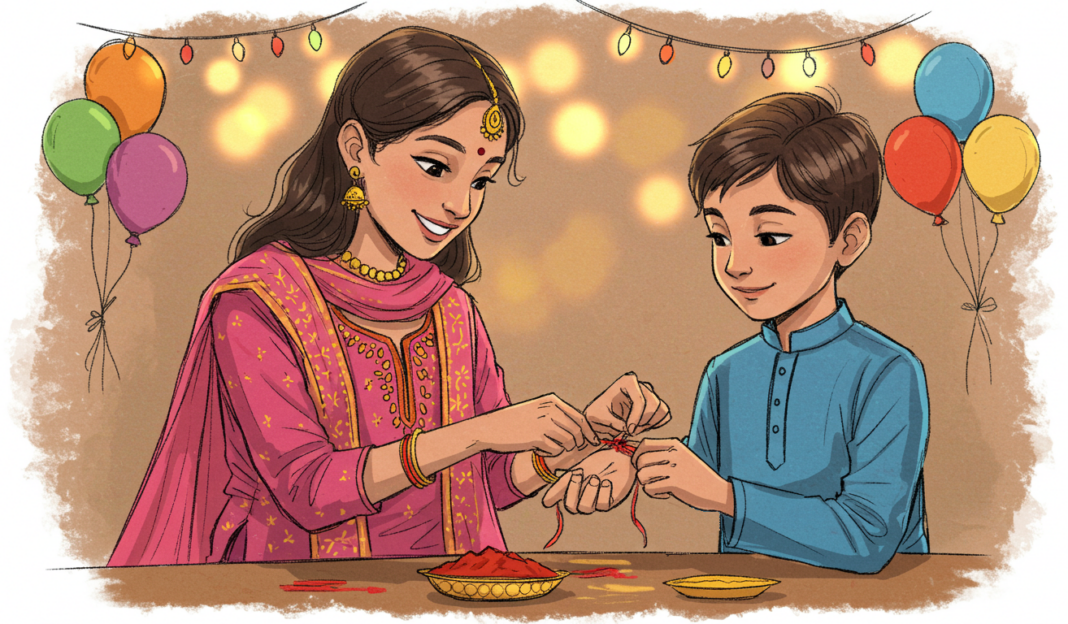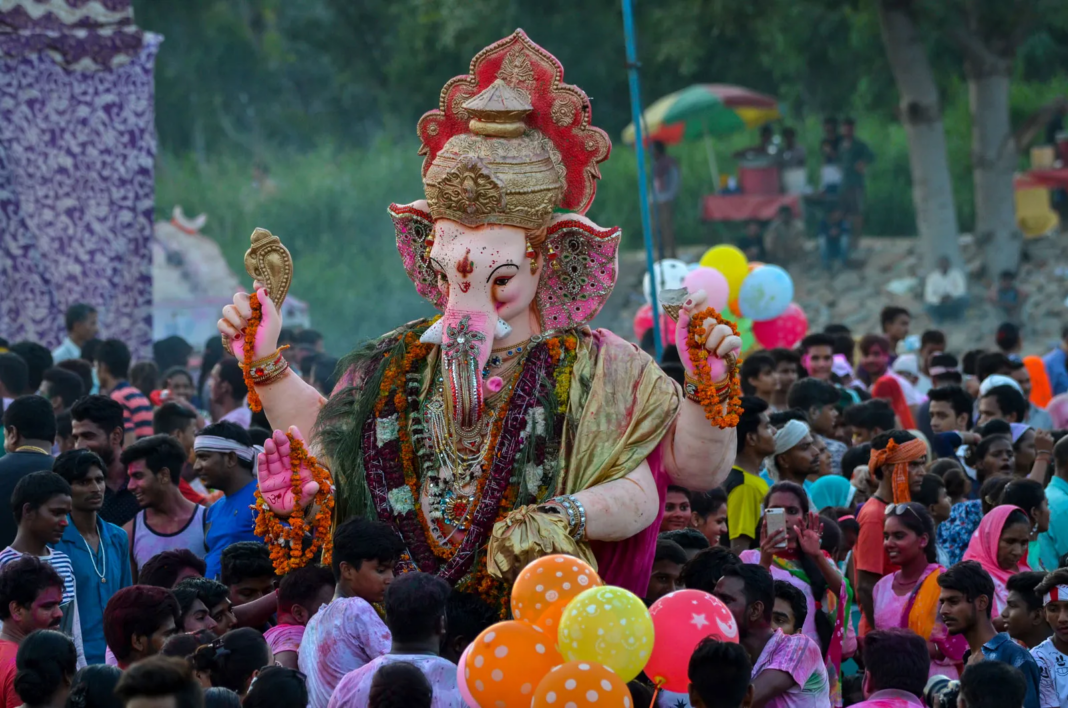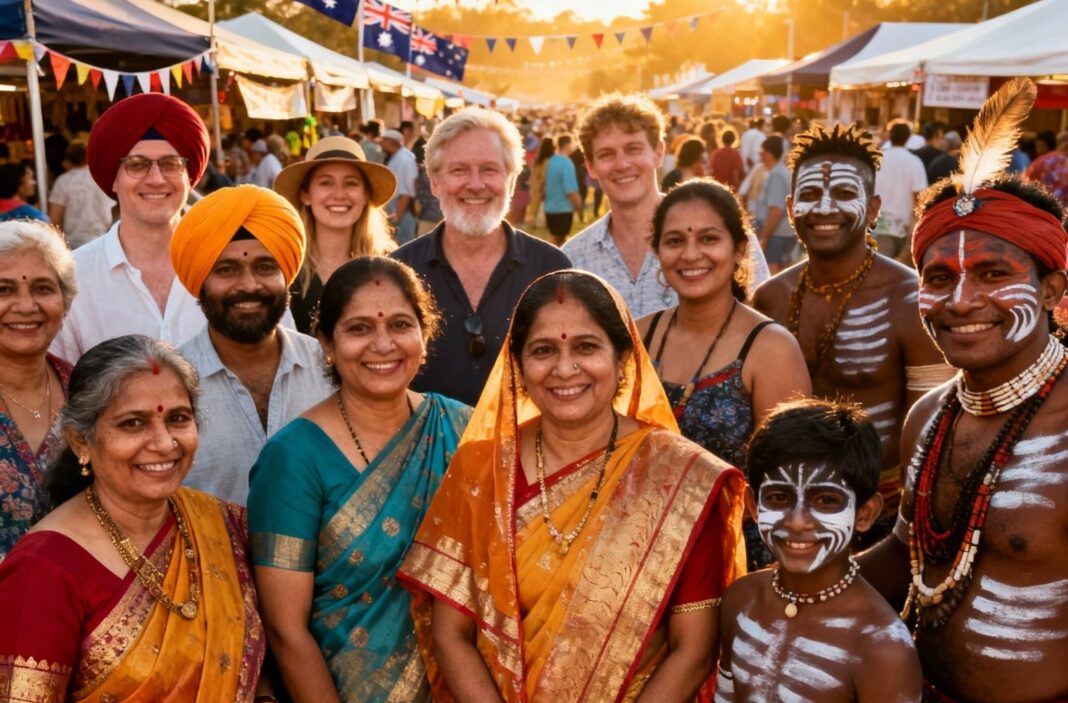Raksha Bandhan is a cherished Hindu festival that celebrates the bond of love, protection, and trust between siblings—especially between brothers and sisters. The word Raksha Bandhan translates to “bond of protection,” and the festival is celebrated on the full moon day of the Hindu month of Shravana (usually August). In 2025, Raksha Bandhan will be celebrated on Friday, August 8th and Saturday, August 9th, depending on the auspicious timing. On this day Sisters tie a Rakhi—a sacred thread—on their brothers’ wrists. This symbolizes love and protection, and brothers promise to safeguard their sisters. Families gather, exchange gifts, share sweets, and enjoy festive meals together.
The festival of Raksha Bandhan commenced when Mata Lakshmi tied the ‘Rakhi’ on King Bali’s hand. King Bali offered his devotion by sacrificing everything to the Lord. The below Sanskrit Shlok is chanted by Hindu Priests when they tie a Raksha Sutra to their devotees during Puja. But it also has the significance on the day of Raksha Bandhan festival.
Meaning of the Shloka: I tie on you (the devotee) the Raksha Sutra which was tied on the mighty demon king Bali. Therefore, O Raksha (Sutra), Do not ever fail to protect this devotee, do not ever fail.
Historical Stories from Bharat (India) Raksha Bandhan is steeped in stories that reflect its deeper meaning:
- Shree Krishna & Draupadi: When Krishna injured his finger, Draupadi tore a piece of her saree to bandage it. Touched by this gesture, Shree Krishna vowed to protect her always- a promise he fulfilled during her humiliation in the Kaurava court. This inspired the protective meaning of Raksha Bandhan.
- Yama & Yamuna: Yamuna tied a Rakhi to her brother Yama (god of death), who granted her immortality and promised to visit her annually. This signifies the bond of love.
- Indra & Sachi: Indra’s wife tied a sacred thread before he went to battle, symbolizing divine protection and understanding the duty of Dharma.
These stories show that Raksha Bandhan transcends blood ties – it’s about loyalty, protection, and love.
There is also a story about Rani Karnavati & Humayun where it is believed that Rani Karnavati of Mewar sent a Rakhi to Mughal Emperor Humayun, seeking his protection in a battle against Bahadur Shah. However, none of the contemporary historians mention the incident. Even later historians deem the story a ‘legend’ and not the true historic event.
Significance in Today’s World
In modern times, Raksha Bandhan has evolved beautifully:
- It’s no longer limited to siblings—friends, neighbors, soldiers, and even trees are honored with Rakhi.
- It symbolizes unity across communities, genders, and faiths.
- With families often separated by geography, digital Rakhi’s and virtual celebrations have become common.
- It’s a reminder to cherish relationships and uphold values like care, responsibility, and mutual respect.
Unique ways of Raksha-Bandhan Celebrations in Australia:
Over the last 2 decades, The Hindu diaspora has integrated its cultural values very well within the Australian livelihood. There are many Hindu organisations who have started celebrating this Festival to spread the message of Bandhu Bhav (Feeling of National Unity). Hindu Swayamsevak Sangh (HSS) Australia has been celebrating Raksha Bandhan with a strong cultural and social message – Volunteers tie Rakhi not just to each other, but also to community members, police officers, and even the Bhagwa Dhwaj (saffron flag), symbolizing unity and protection of society. Events include cultural performances, speeches, and reaffirming the commitment to serve and protect the community. In Melbourne and other cities, HSS organizes Raksha Bandhan Utsavs that blend tradition with multicultural harmony.
Last year the volunteers from the Australian Hindu Community Inc. (AHC) went to local Police stations and offered delicious Indian Sweets and greeting cards with the messages of Raksha-bandhan to express their gratitude towards the Local Police forces for their commitment of protecting the society.
In today’s fast-paced world, this festival is a beautiful way to reconnect with family members and renew commitments to each other. It’s also a celebration of unity and brotherhood, transcending religious and regional boundaries.
Raksha Bandhan and the Spiritual Connection:
Raksha Bandhan, while popularly known as a celebration of sibling bonds, carries profound spiritual and cultural significance in the Sanatan Dharma—especially when viewed through the lens of dharma, or righteous duty. Dharmo Rakshati Rakshitah: This Sanskrit phrase means: “Dharma protects those who protect it.” It appears in the Mahabharata and Manusmriti.
Protection as a Sacred Duty- The word Raksha means protection, and Bandhan means bond—together symbolizing a vow of safeguarding. In Hindu tradition, protecting dharma is a core responsibility. Dharma encompasses moral order, justice, and one’s duty in life. Raksha Bandhan echoes this commitment: the act of tying a rakhi is not just a familial gesture but a symbolic reaffirmation of one’s duty to protect righteousness and uphold values. Dharmo Rakshati Rakshitah reminds us that upholding righteousness (dharma) ensures our own safety and well-being.
Dharma in the Bhagavad Gita – Raksha Bandhan aligns with the Gita’s teachings on nishkama karma—selfless action. Just as Arjuna is urged to fight for justice without attachment, the festival reminds individuals to protect others and uphold dharma without selfish motives. It is not just about Rakhis, Gifts and sweets—it’s a True ritualized reminder of the sacred duty to protect what is just and true. Just as dharma protects those who uphold it, Raksha Bandhan celebrates the act of protecting and being protected—not just physically, but emotionally and ethically.
On this Raksha Bandhan Utsav, let us all take the pledge that the rakhi that we tie to our siblings, loved ones or community member becomes a metaphor for dharma: a true reminder to act with integrity, love, and responsibility toward one another, our society, our country and the whole Planet earth.
Reference:
- Teachers and Parents – Festivals – Raksha Bandhan
- Raksha Bandhan 2025 & the Bhagavad Gita: A Festival of Duty, Protection, and Selfless Love
- Raksha Bandhan 2025: Date, Auspicious Time, History And Astrological Significance Of The Festival | Outlook India
- Raksha Bandhan 2025 Date: All You Need To Know About Significance, Shubh Muhurat Time
- Dharmo Rakshati Rakshitah – Wikipedia
- Dharmo Rakshati Rakshit – धम रक्षित रिक्षतः | Shree Swaminarayan Gurukul International School
- https://hindupost.in/history/rani-karnavati-humayun-rakhi-myth-was-propagated/




